News
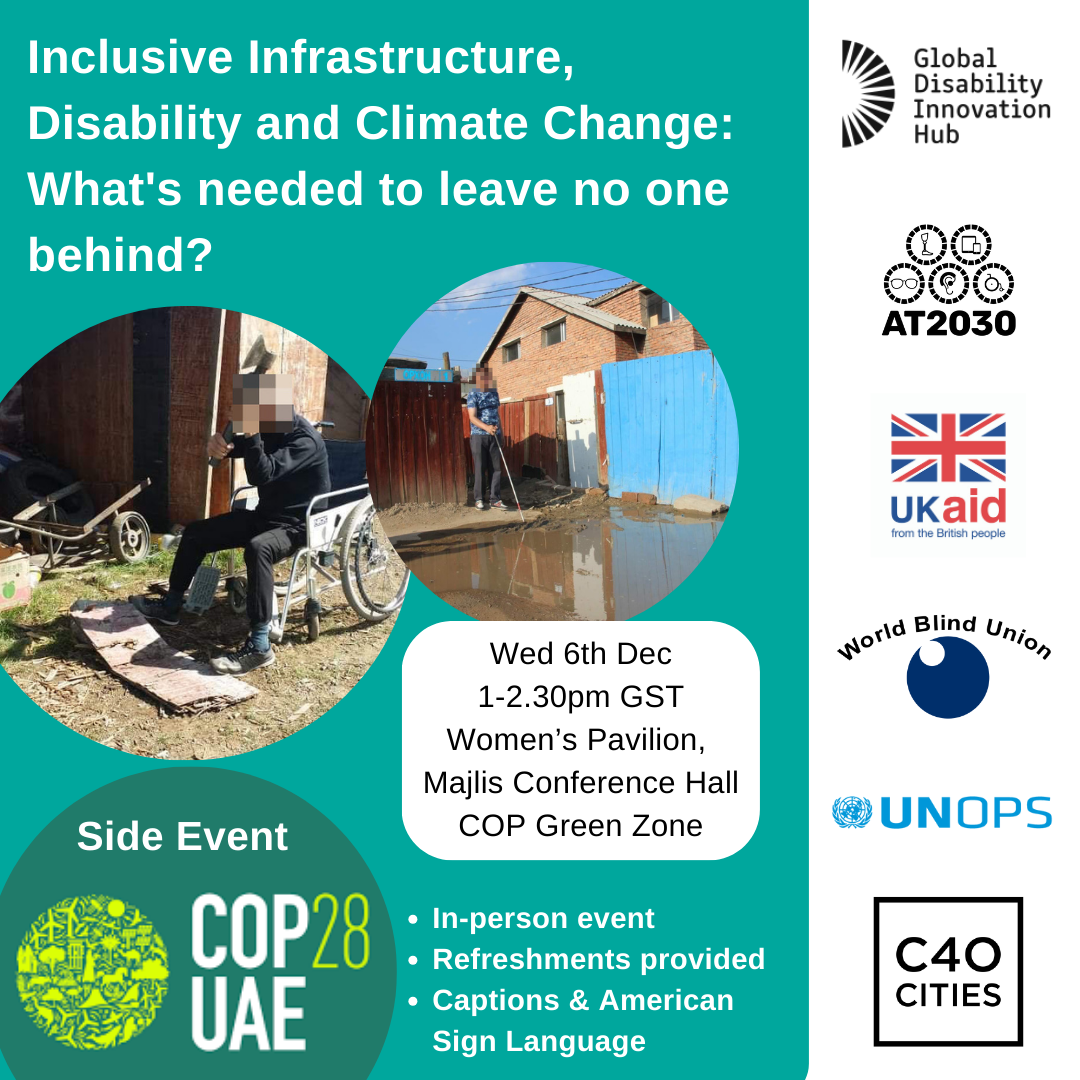
Inclusive Infrastructure, Disability and Climate Change: what's needed to leave no one behind
Join us at COP28 as we bring together stakeholders working across inclusive infrastructure, disability-inclusive urban development, and climate change action to discuss partnerships and practical actions to ensure persons with disabilities are not left behind. As cities integrate climate adaptation and mitigation infrastructure, accessibility and inclusion must be embedded. There is no resilient and sustainable future without inclusion.
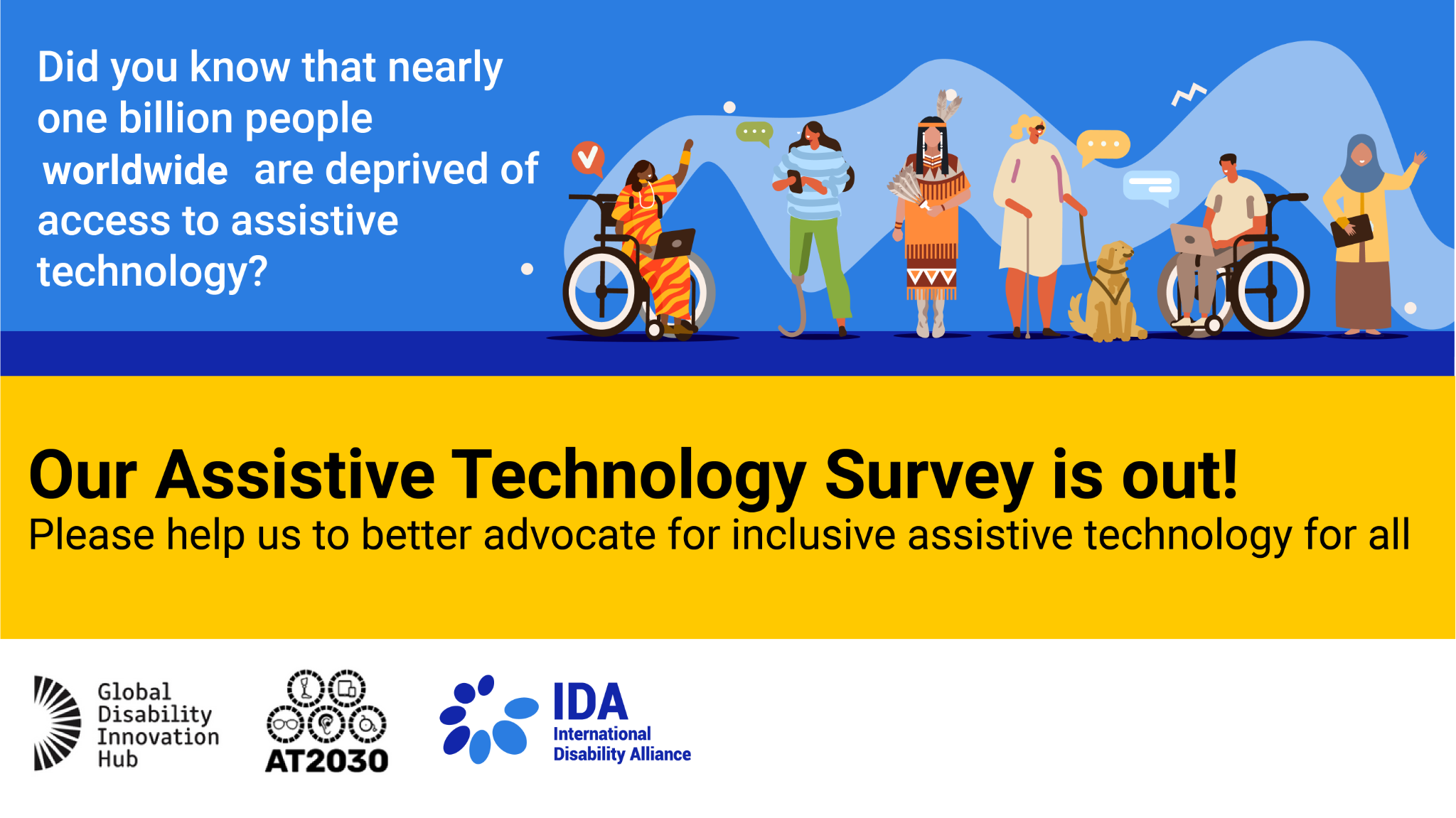
Online survey to collect insights on critical aspects of assistive technology device use and access
This International Disability Alliance (IDA) project looks to positioning OPDs as equal partners on AT. The project intends to strengthen the role of persons with disabilities and their representative organizations, in advancing the use of and access to AT devices. Central to the project is, collecting knowledge and research from persons with disabilities.
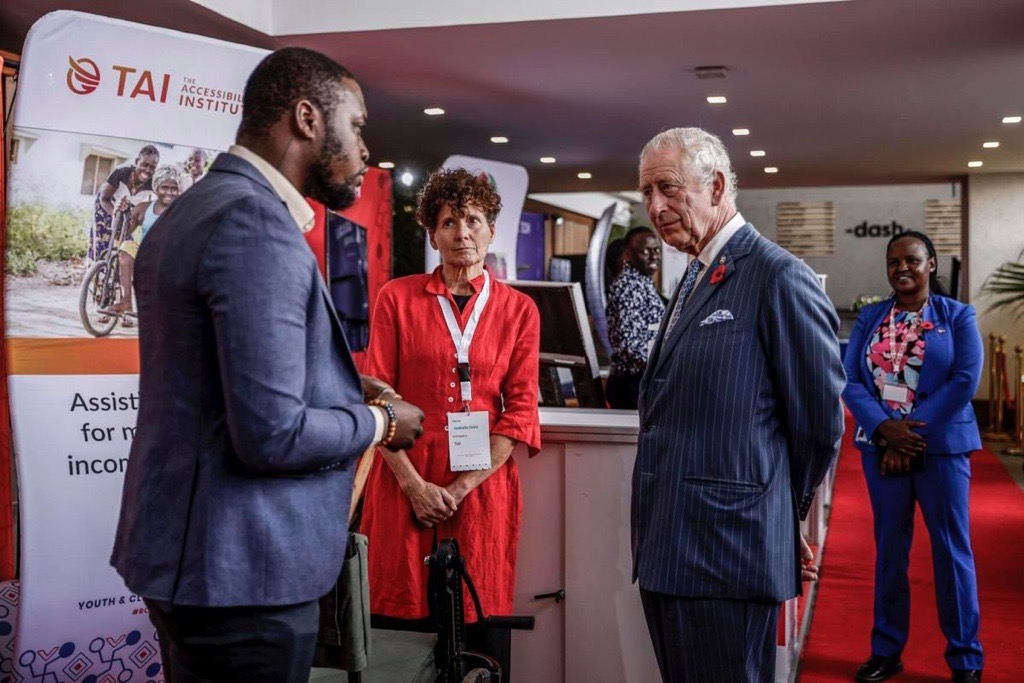
His Majesty the King concludes visit to Kenya with encouragement for Assistive Technology innovators, and meets ventures from our Innovate Now accelerator
His Majesty King Charles III recently concluded his visit to Kenya, where he met ventures from the Global Disability Innovation Hub’s Innovate Now Accelerator, Africa's first Assistive Technology Accelerator. The King's visit served as a significant boost for the Kenyan assistive technology sector, highlighting the country's leadership in developing affordable solutions for people with disabilities.
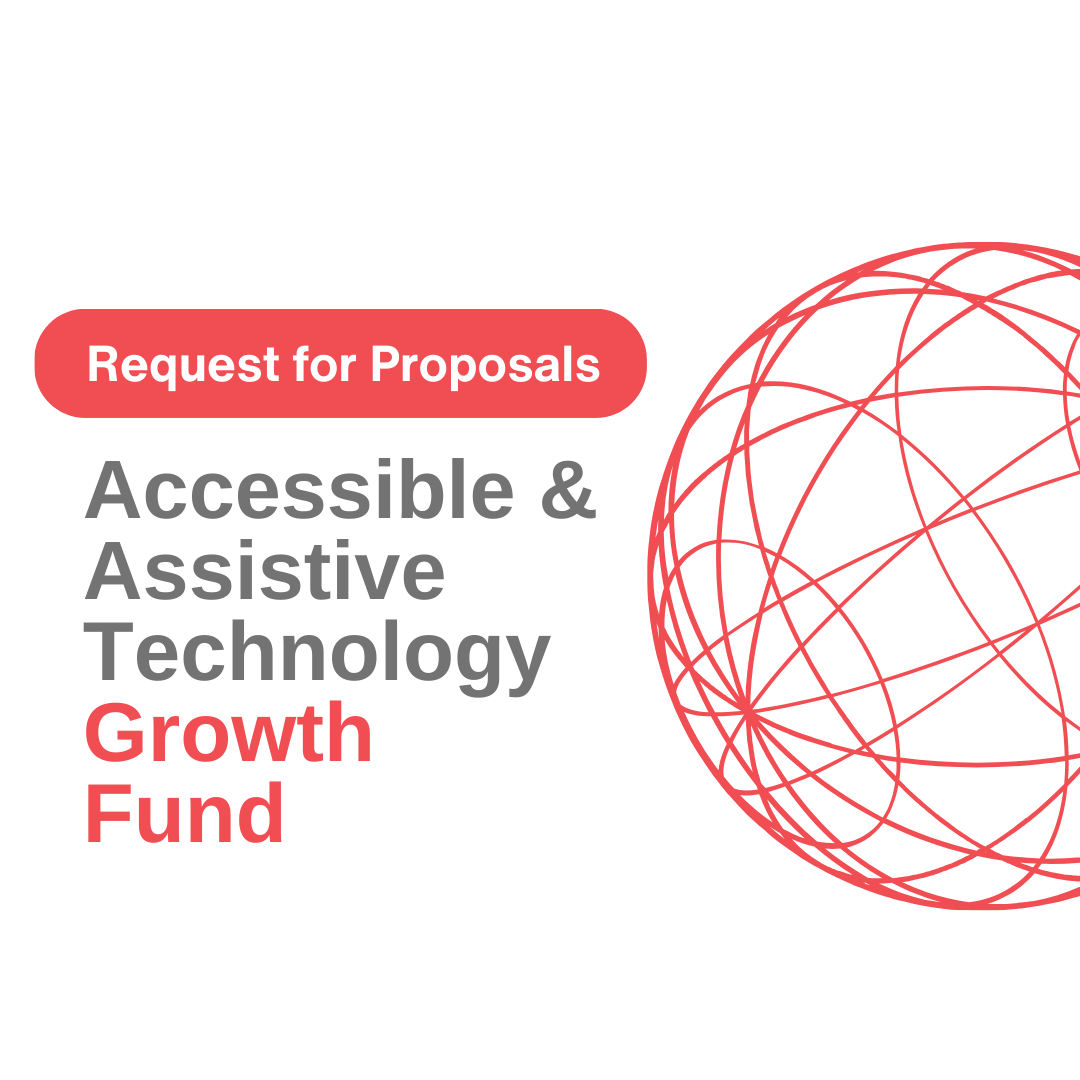
Request for Proposals: Accessible and Assistive Technology Growth Fund
AT Growth Fund will be an impact-first blended finance vehicle, combining leading-edge domain expertise with a global network of partners across research, innovation, international development, big tech, and public and private sectors. Global Disability Innovation Hub (GDI Hub) are seeking proven partners in impact-driven investing to develop the strategy, underpin the business model, and to mobilize and manage the fund.
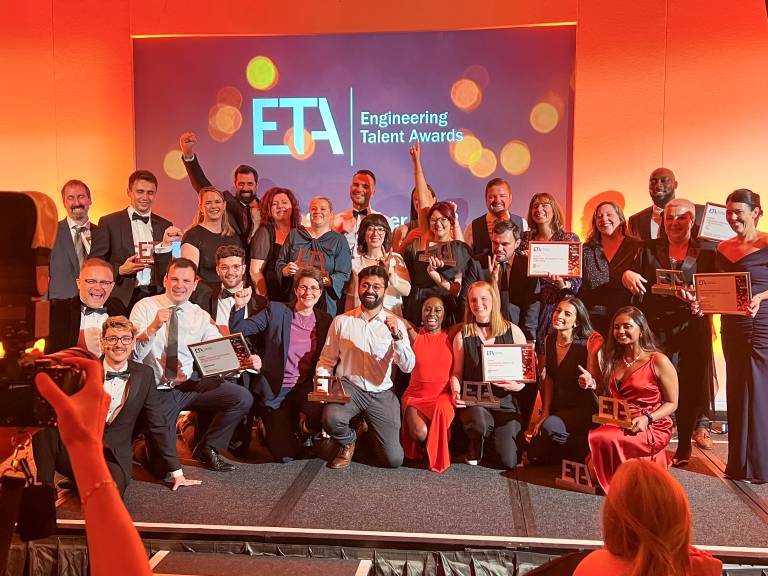
Celebrating Excellence: Winners Announced at the 2023 Engineering Talent Awards!
The UCL Global Disability Innovation (GDI) Hub won Innovation of the Year for the development of a new, refreshable tactile technology Tacilia. The team aimed to allow children who are blind or have partial sight to be better able to engage with Science, Technology, Engineering, Arts and Maths (STEAM) education.
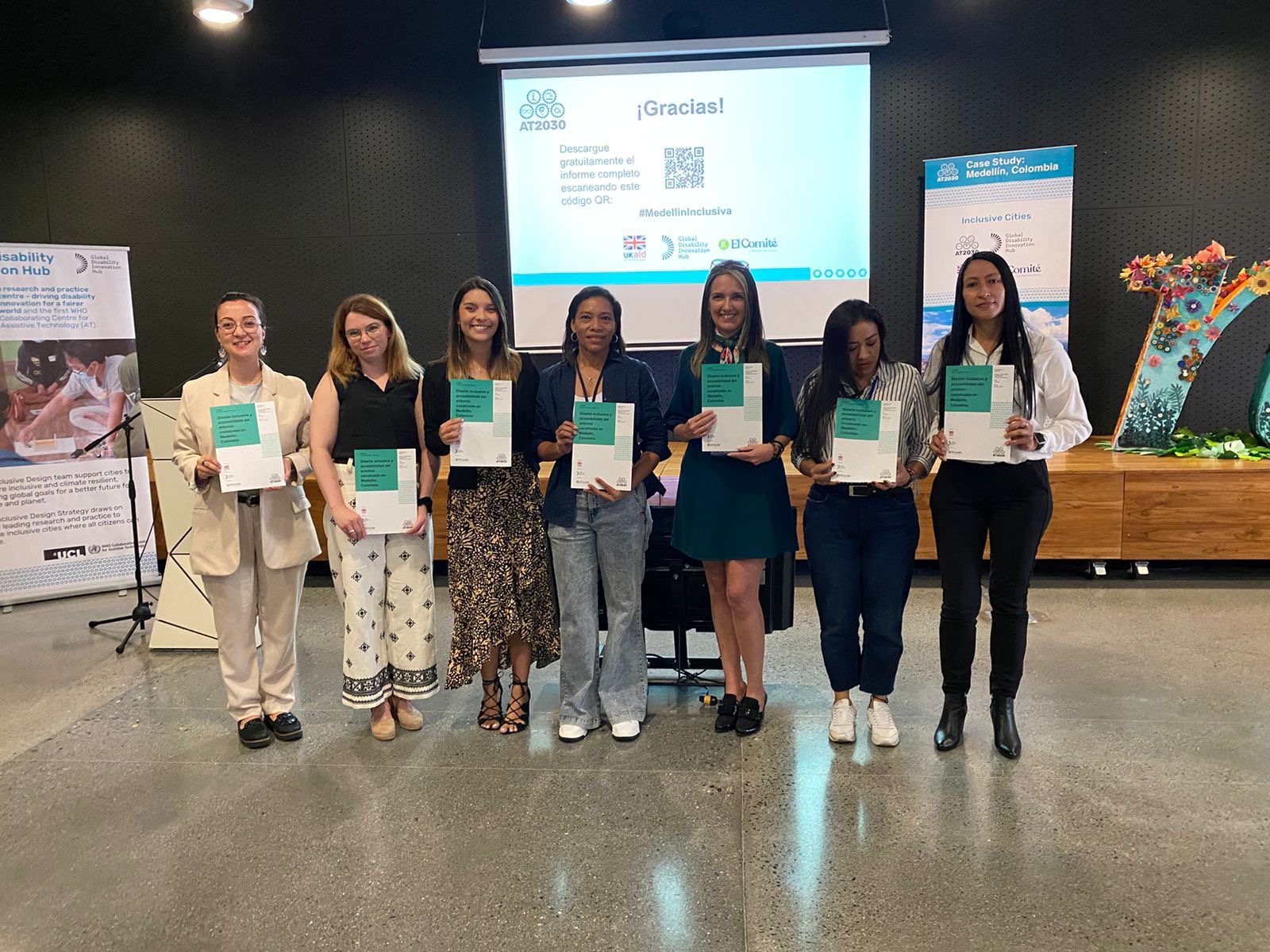
Inclusive Infrastructure Case Study Launched in Medellín, Colombia - Exploring Inclusive Environments
Medellín, Colombia is the sixth and final case study city under the Global Disability Innovation Hub (GDI Hub) led and UK Aid funded AT2030 Inclusive Infrastructure sub-programme. Colombia’s second largest city, Medellín is well-known for its progress in urban development in the last 20 years, moving forward from its violent history. Medellín has been designated a district of innovation and is known for innovative urban projects such as its cable cars and electric escalators that connect higher altitude, low-income communities on the peripheries of the city. This case study explores the current state of accessibility and inclusion in the city for persons with disabilities and helps understand whether such urban innovations are inclusive for all the city’s residents.

Launch event Inclusive Design Medellín
An online event to share the findings and recommendations for infrastructure, built environment and urban development in Medellín, Colombia.

UCL and Indian partners to drive disability innovation through assistive technology
The Global Disability Innovation Hub (GDI Hub) at UCL has announced a new collaboration with the Indian Institute of Technology to support disability inclusion. The academic research and practice centre, based at UCL East, signed a new Memorandum of Understanding with colleagues from the Assistech Lab at Indian Institute of Technology Delhi (IIT Delhi) and R2D2 lab at Indian Institute of Technology Madras (IIT Madras). As leaders in assistive technology (AT) research, the organisations plan to jointly deliver a collaborative AT Accelerator Program, an AT Innovation Portal, and an AT Academic Innovation Partnership to drive knowledge across different markets.
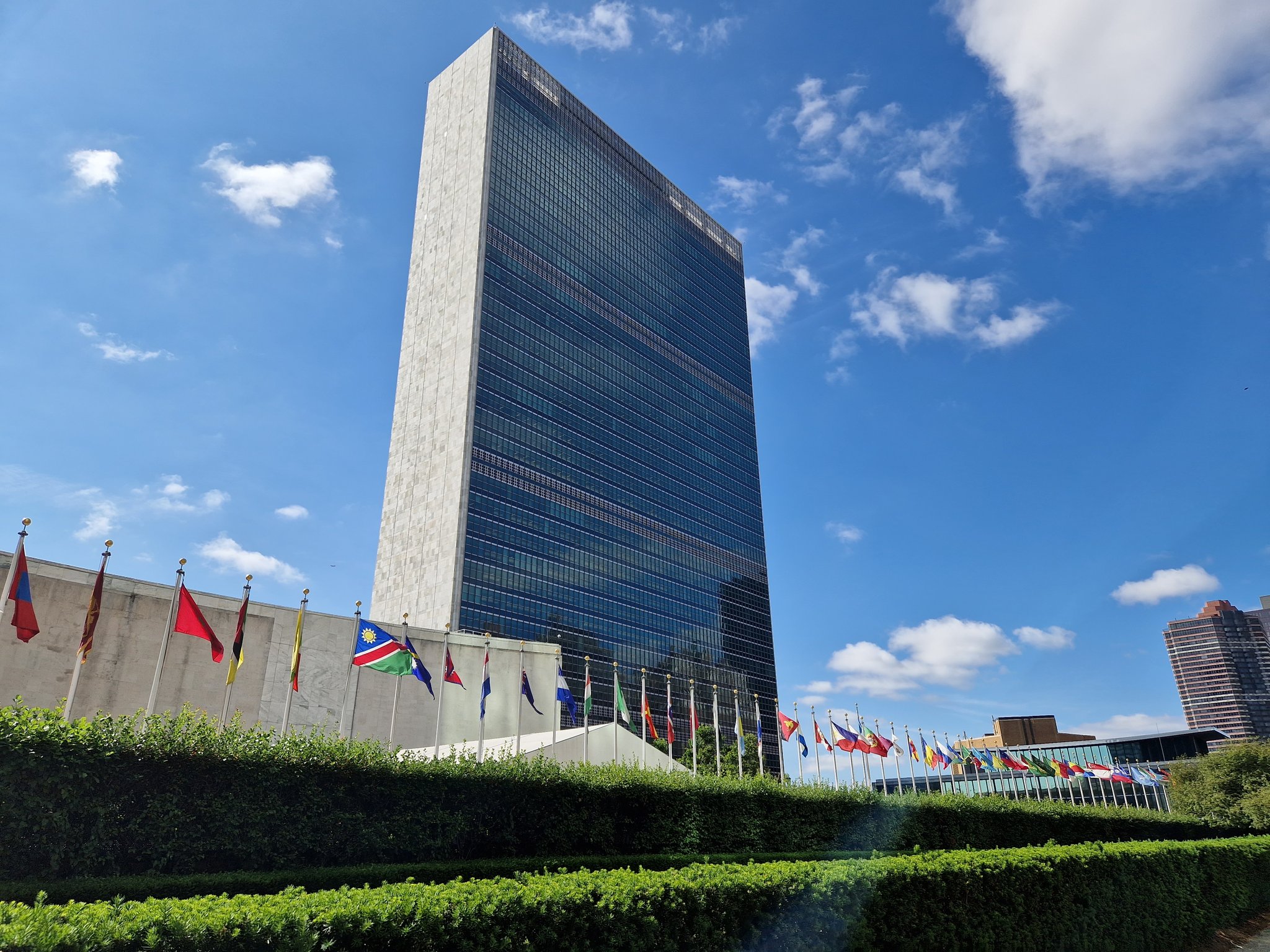
UK aid announces £31 million to improve access to life-changing Assistive Technology for all, backing increased ground-breaking innovation and research by the AT2030 programme, led by Global Disability Innovation Hub, at UCL.
The UN annual Disability conference at the United Nations in New York, Rt Hon Tom Pursglove MP, Minister of State for Disabled People, Health and Work in the UK, announced that UK Aid would invest a further £31 million into the AT2030 programme, led by GDI Hub, to reach 9 million more people directly and 12 million more people indirectly with life-changing accessible technology.
![Text graphic - '[Monday 6:30pm EDT] Comprehensive Approaches to Disability Inclusion (hosted by World Bank Group)
GDI Hub CEO Dr Vicki Austin will address the event
[Tuesday 9:45am EDT]
Inclusive Urban Development: Accessibility as an enabler for reaching under-represented groups of persons with disabilities
(co-hosted by UN-Habitat India, UNRCO India, Global Disability Innovation Hub)
[Tuesday 6:30pm EDT]
‘What Works’ to improve access to life-changing Assistive Technology (AT) for all
(co-hosted by Global Disability Innovation Hub, WHO & His Majesty's Government United Kingdom) - find out more about our UK aid funded AT2030 programme
[Wednesday 9:45am EDT]
Breaking Down Accessibility Barriers Through Localisation: Presenting and unpacking recommendations for States Parties to accelerate implementation of accessibility
(hosted by WBU)
[Wednesday 1.15-2.30pm EDT] Digital Assistive Technology Challenges and Opportunities: The Potential of Mobile Devices Cover Image](/static/website_creator/img/FyDPnsxXsAQ4jv1.jpg)
GDI Hub and partners side events at COSP
A full list of details and registration to the GDI Hub led side-event at Conference of State Parties (COSP) to the CRPD as well as details of the side-events GDI Hub are co-hosting and supporting with partners.
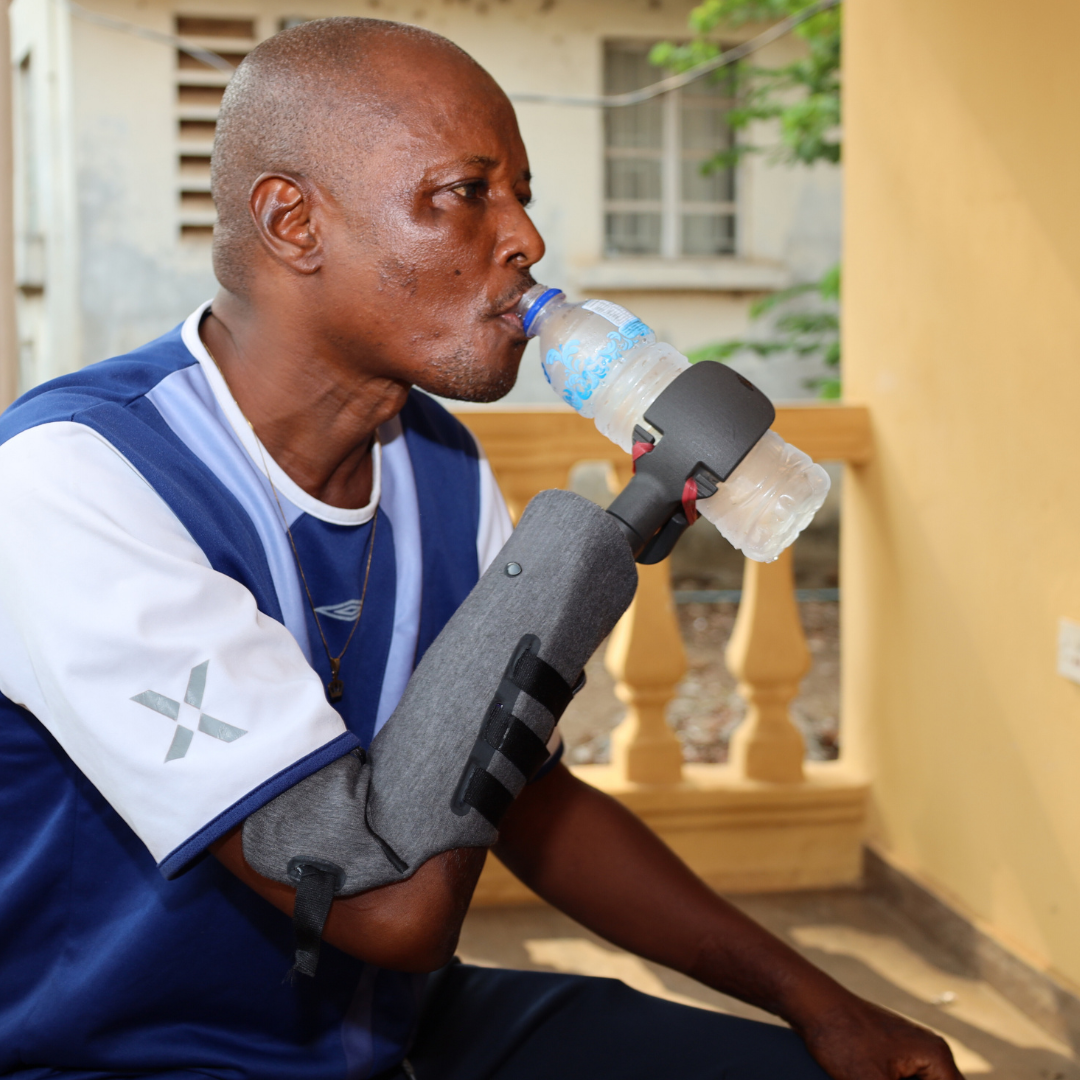
GDI Hub at Conference of State Parties (COSP) - exploring ‘What Works’ to improve access to life-changing Assistive Tech (AT) for all
Five years ago we began to test something new. Bringing together key stakeholders and experts working across the AT arena, with the aim of enabling researchers, innovators and AT users to experiment with new ideas. Join Global Disability Innovation Hub, His Majesty's Government United Kingdom (UK), The World Health Organization and in partnership with UNICEF, ATscale and The International Disability Alliance for a unique insight into testing and backing new approaches.
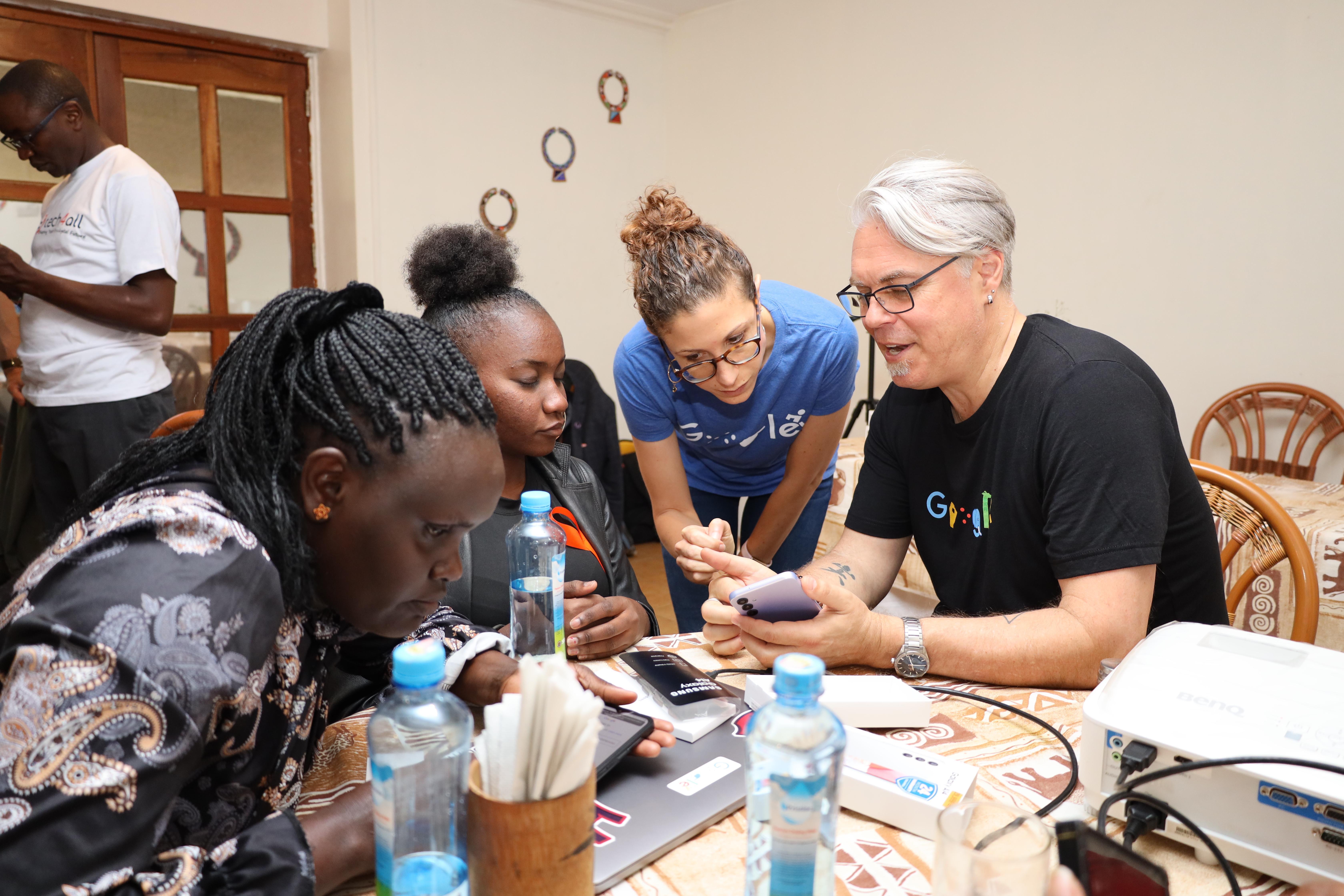
Google project to assist sight and hearing in India, Brazil, and Kenya
Mobile as Assistive Technology: How Digital Assistive Technology is Transforming Lives GDI Hub, Google and AT Scale launch pioneering project to test ‘Mobile at Assistive Tech’ in Kenya, Brazil and India.
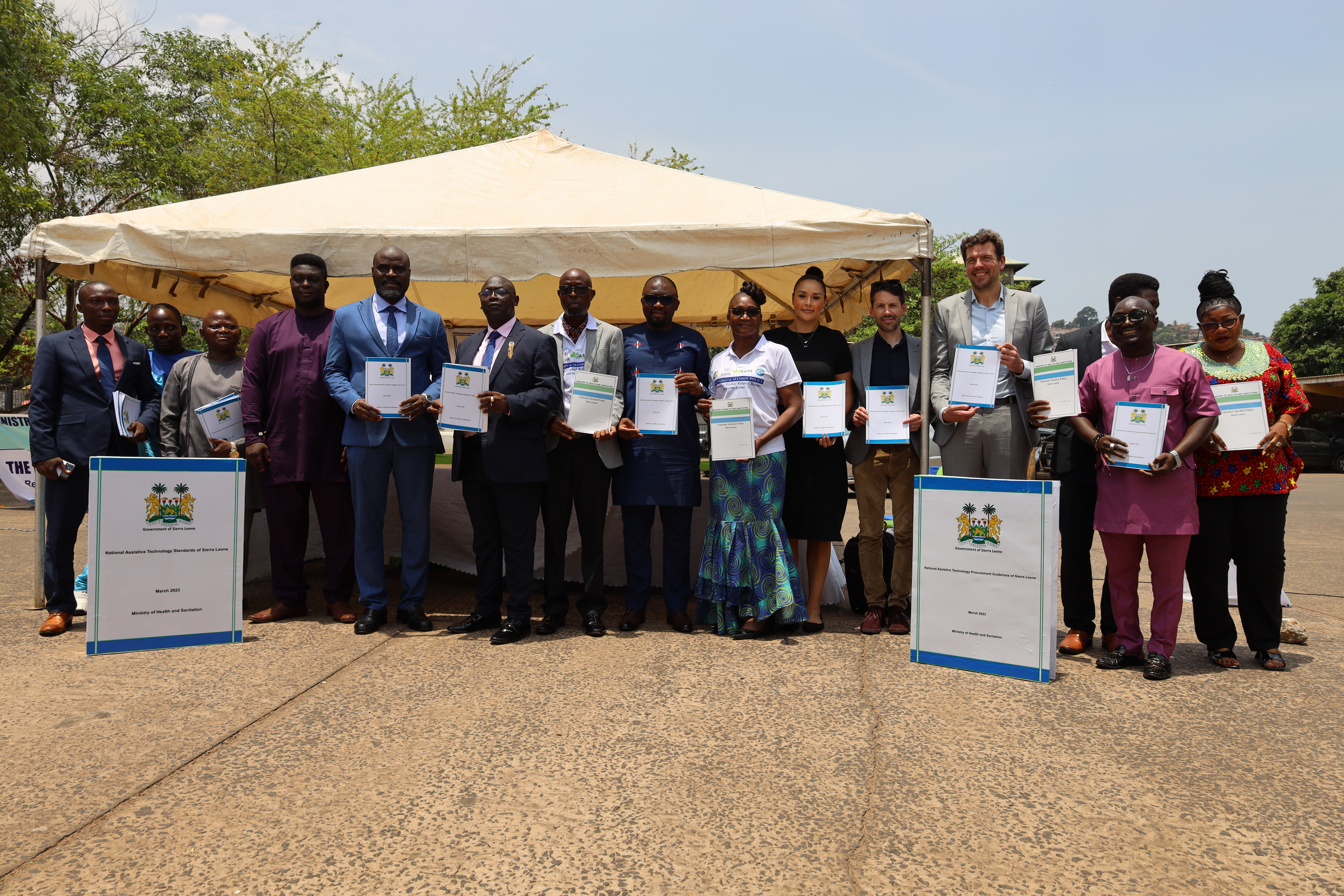
AT Standards and Procurement Guidelines Launch Freetown, 12 April 2023
Persons with disabilities face multiple challenges. According to the World Health Organization (WHO), an estimated 1.3 billion people worldwide experience significant disabilities, representing 16% of the world's population or 1 in 6 individuals. Additionally, persons with disabilities are at a higher risk of developing various health conditions and may experience premature mortality. To address these challenges in Sierra Leone, the Ministry of Health & Sanitation, with support from Clinton Health Foundation (CHAI) and other technical partners, conducted a landscape assessment of assistive technology (AT) services in Sierra Leone in 2019. The assessment revealed critical gaps in the Assistive Technology (AT) landscape, including the absence of a policy and strategy for AT, which posed challenges for planning and implementing evidence-based AT activities in the country.
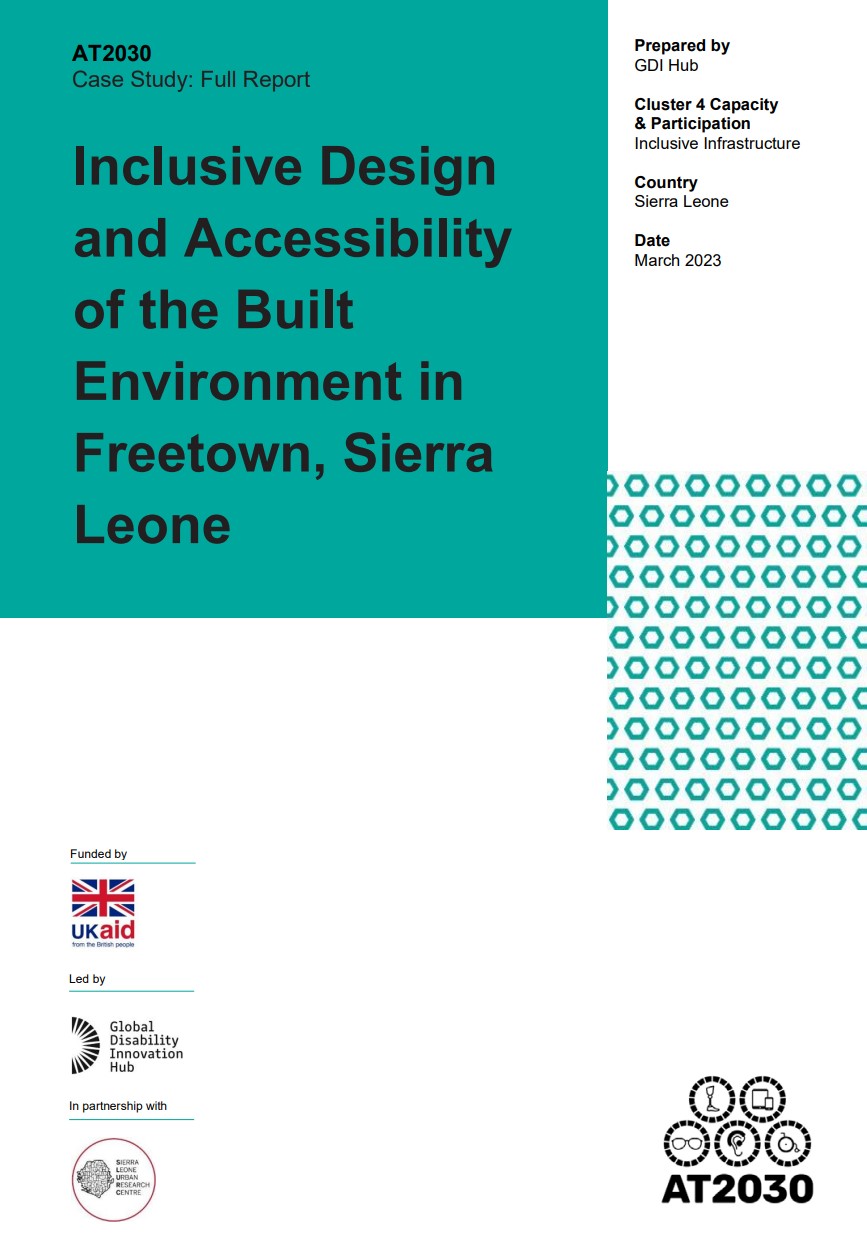
Press Release: Inclusive Design and Accessibility of the Built Environment in Freetown
Global Disability Innovation Hub (GDI Hub) and Sierra Leone Urban Research Centre (SLURC) are delighted to invite you to the launch of this new case study considering Inclusive Design and Accessibility of the Built Environment in Freetown as part of the UK aid funded AT2030 sub-programme, ‘Inclusive Infrastructure’ - exploring the role of inclusive environments to enable equal access to Assistive Technology (AT).

Launch Event: Inclusive Design and Accessibility of the Built Environment in Freetown, Sierra Leone
A launch event of Freetown's Inclusive Design and Accessibility of the Built Environment Case Study. This event will share findings and recommendations for infrastructure, built environment and urban development - with the aim of driving global action to more accessible and inclusive cities.
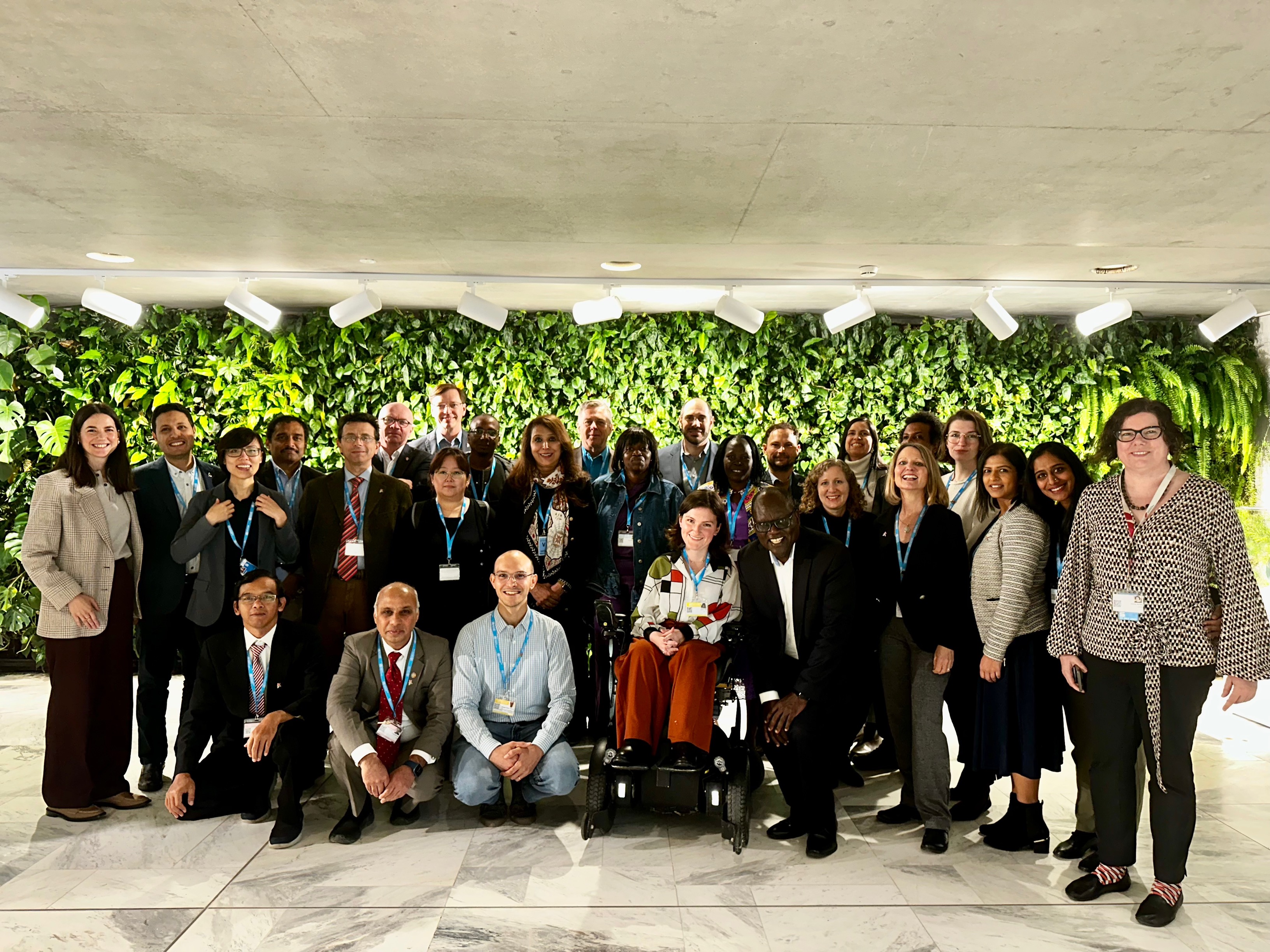
Lessons learnt from the multi country rapid Assistive Technology Assessment rATA survey
On 28 and 29 March, the WHO Assistive technology team hosted a meeting in Geneva to review the methodology, outcome and dissemination of the WHO rapid Assistive Technology Assessment (rATA) survey and plan for further strengthening this important data collection tool.
Assistive Technology Data & Insights Portal - a vision for a highly accessible tool to serve the global Assistive Technology ecosystem
Globally the AT space is developing rapdily, and alongside this comes a growing demand for highly accessible data & insight portal to serve the wider ecosystem, stakeholders, researchers and decision makers. Without a relevant and accessible source of data and insight, participants are struggling to connect, engage, research, invest, source, scout, procure, and contribute to the evolution of this nascent and rapidly growing global ecosystem. We are looking to change this.
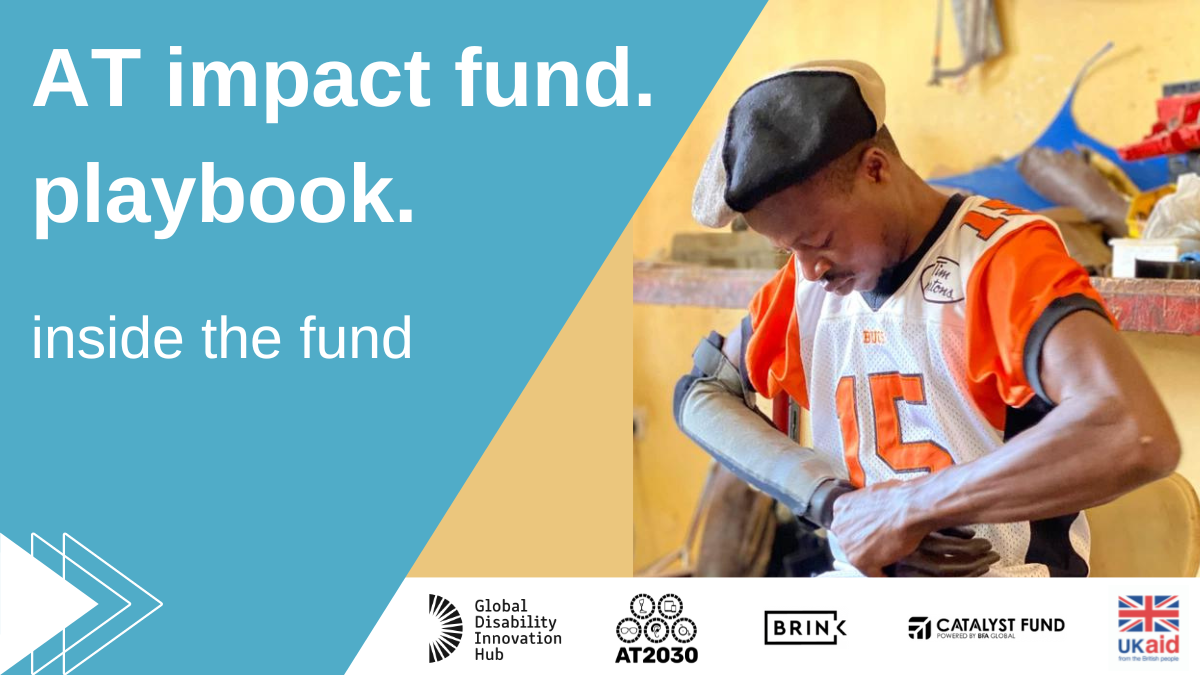
New Assistive Tech Impact Fund playbook - a unique window into our experiences
Set up as a trial to learn if grant capital + venture building support would help African Assistive Tech (AT) ventures overcome the problems that stood in the way of scaling, the Assistive Tech Impact Fund playbook is a unique window into this UK aid funded project. It exlores the challenges, learnings & mechanisms for Assistive Tech ventures entering and scaling new markets in Africa.
AbilityNew Techshare Pro 2022
With over 2,000 registrations AbilityNet TechShare Pro 2022 was Europe's largest gathering of accessibility and disability inclusion professionals - and their allies. Archive tickets give you access to all recordings from three days of engaging, interactive sessions, inclduing keynotes, workshops and discussion forums. AT2030 programme leads Bernard Chiira and Professor Catherine Holloway were part of panel discussions at this conference.

Medellín announced as the sixth AT2030 Inclusive Infrastructure Case Study
The Global Disability Innovation Hub is delighted to announce that under the UK Aid-funded AT2030 programme, the sixth and final case study of the Inclusive Infrastructure sub-programme will take place in the city of Medellín, Colombia. The case study will start in January 2023 with the aim of launching the report in early summer.